Still worried about Thurston
On the table this week
Week 39 or according to the new calendar: Week 2 without Thurston
It serves Cromwell right when food lies heavy in his stomach. He has sent dear Thurston to war. Unforgivable. If I understand it correctly, Thurston can only be found historically in Cromwell's will. The will is from 1529! I can only hope that Hilary Mantel didn't get any ideas and took advantage of the white canvas that Thurston offers after 1529 to paint a tragic story of Thurston.
‘They dream of a bowl such like this’
But at least: After last week1 offered few culinary references, it's worth checking out what was served this week. The highlight for me is the gooseberry custard2, for which we even get the ingredients: fresh hen’s eggs, a pitcher of cream, sugar, gooseberries, nutmeg, mace, cumin and rosewater.
Uncle John seems to have been one of the very few (I can only think of Cromwell’s sister and her husband) in his childhood who took an interest in little Thomas. I also like his teaching concept of letting the boy taste the fine dishes so that he has an idea of what is being produced in the kitchen. It must have opened up a whole new world for Cromwell compared to the food he ususally ate. Cromwell's love of fine food remained with him for the rest of his life.
Gooseberries on a Table by Adriaen Coorte, 17013
The longest supper
Eating with Henry doesn't make you hungry for more. There is nothing wrong with the food: Lamprey pies and whiting and Suffolk cheese, followed by pheasants. But the supporting programme for the meal! A self-pitying king who has had too much to drink of strong malvasia and then starts singing. You have to endure that in silence. No, thanks.
The Allegory of Water by Giuseppe Arcimboldo, 1566 (There are some paintings of lampreys, but they are nasty looking fish (looking like snakes), so a marvellous Arcimboldo painting instead. There must be a lamprey somewhere in the tangle.)
A quiet supper with Eustache
Cromwell's larders are well stocked, as he has received wagonloads of culinary Christmas presents: fat swans, partridges and pheasants. Word has got round that the Lord Privy Seal loves to eat.
So it's no surprise what's for dinner with the imperial ambassador: They eat ‘spiced venison, teal, partridges and oranges thin-sliced like sunbursts’ at supper, unusual for them they do so in contemplative silence.
Allegory of Air by Jan van Kessel, 1661 (There are many paintings of hunted game birds hanging on hooks, displayed on the sales counter or on a dining table. As a sign of my ongoing protest about the absence of Thurston, I have chosen a painting where all the birds are depicted free and alive.)
Before their supper Eustache expresses his amusement that Henry has to melt down his precious metals to pay for his troops: ‘Henry must eat his Christmas dinner from pewter. All his plate is melted down to coin.’ The Habsburgs have managed to be mostly financially weak for centuries4, but I can understand Eustache disregarding that for a moment.
Breakfast Table by Willem Claesz Heda, 1631 (Claesz's still lifes are magnificent. What I also like about this painting is the detail of the broken glass that has fallen into the plate. )
Memories of Italy keep coming back to Cromwell. The oil and wine in great jars in Florence. The fine white bread at the tables of the rich and dark rye and barley bread for the poor. Wondering who owned his book from Venice before him and imagining the former book owner strolling to the piazza to shop olives, pumpkins, pine-nuts and garlic. Thoughts of his childhood as a kitchen boy have also kept bubbling to the surface over the last two weeks.
‘I imagine other lives that I could have.’ You could have been a merchant or cook in Italy, Thomas.
The Fruit Seller by Vincenzo Campi, c. 1580
Some other culinary references this week: Mary's breakfast consisted of bread, wine and boiled meats. Blossoms of elderberries painted with the white of a egg and dipped in sugar.Cromwell dreaming of rebels who 'net the ministers of the king and grind them up like spices to sprinkle on his porridge'. Eating sausage in Lent (allegedly the people of Zürich) Although last week there was the very wise advice on career choice from Uncle John: ‘A light hand with a sauce, and you’re welcome anywhere.’ A good cook is always needed.
I usually read the English edition, but this week I gave the German edition another try. There ‘aromatic custard’ is translated as ‘Vanillecreme’, vanilla cream. If vanilla had been there, it would have been mentioned as the expensive sugar and nutmeg were mentionned, sigh. I’ll stick with the English edition.
The painting is from a bit later than I normally use here, but this was the only one with gooseberries I found.
In Austria for 640 years




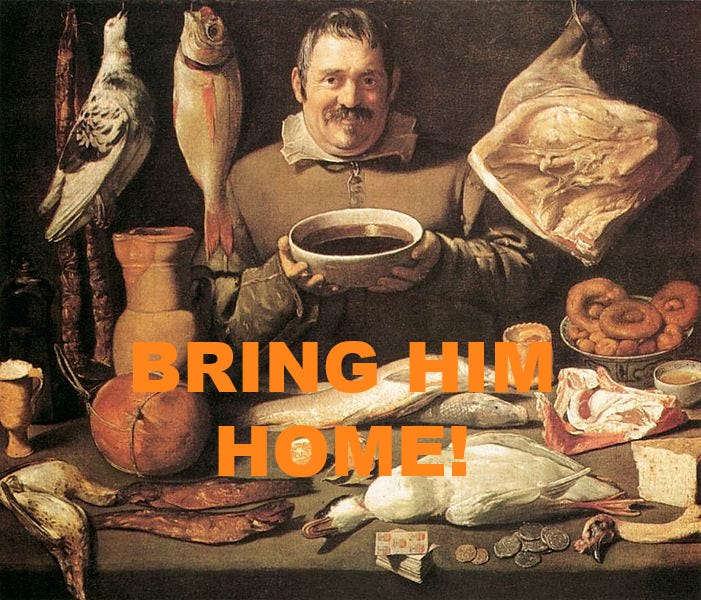
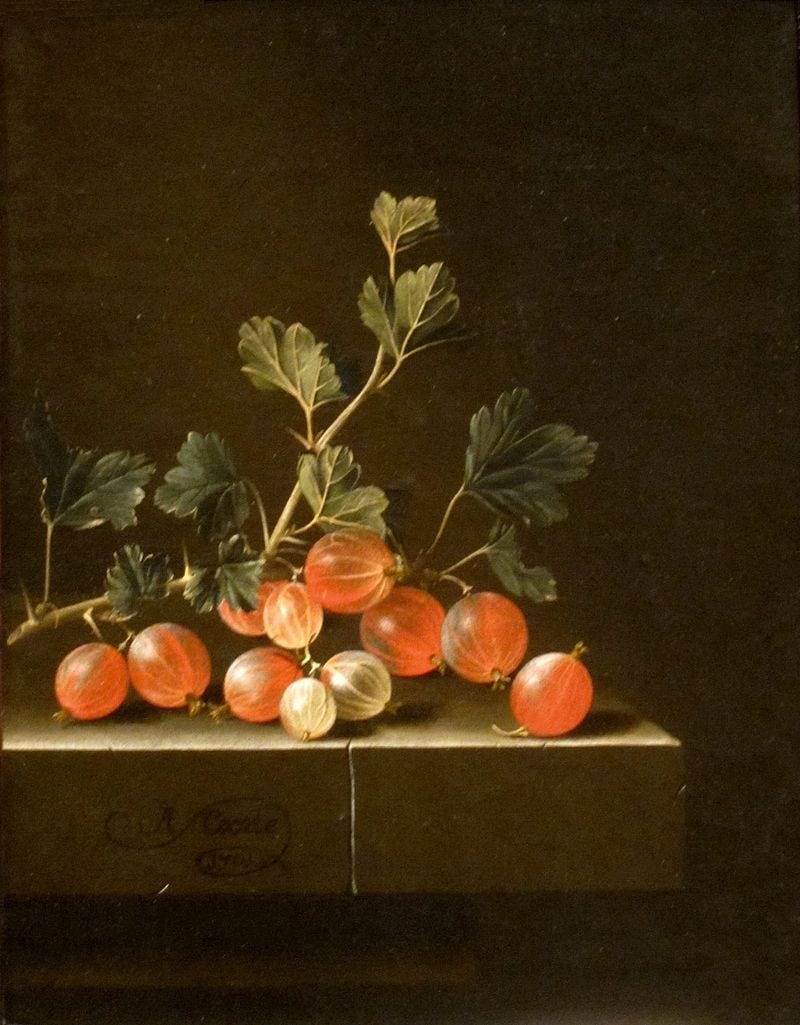
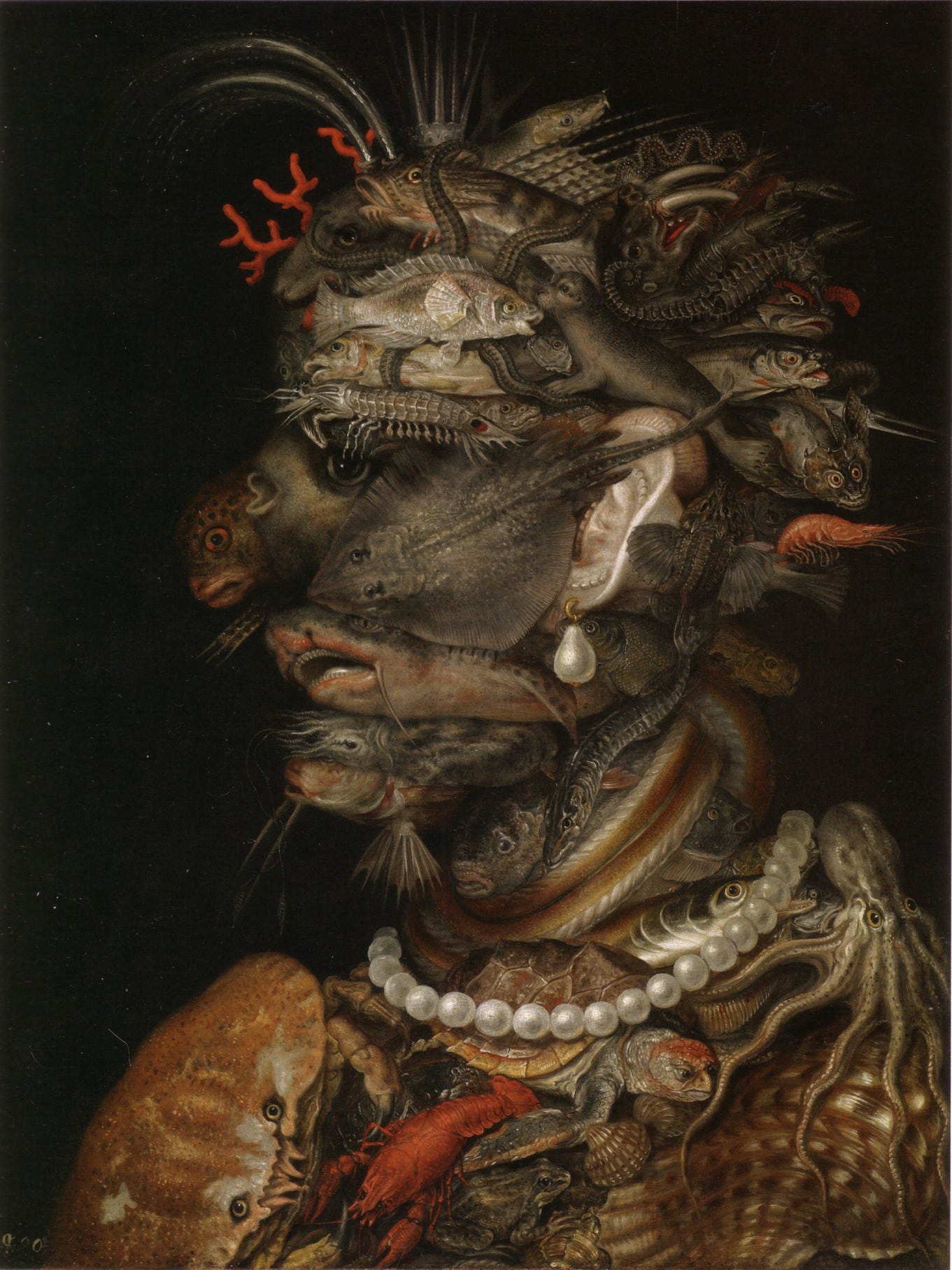
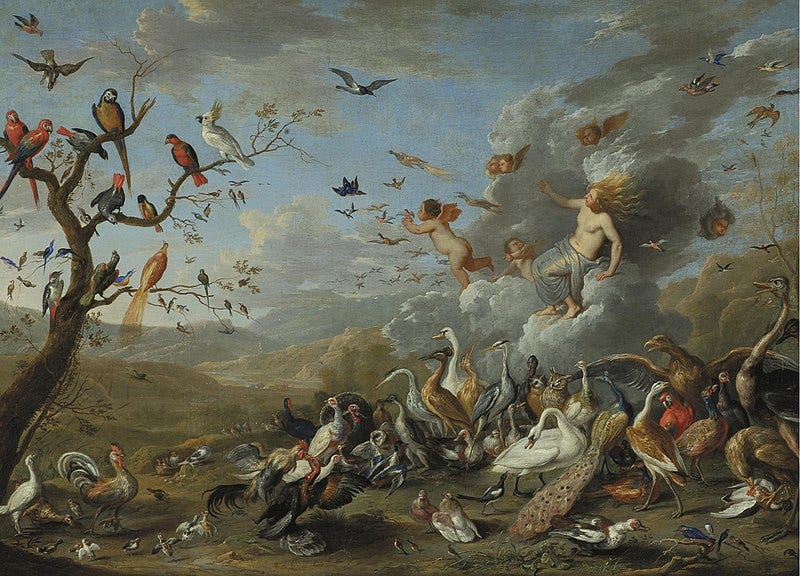
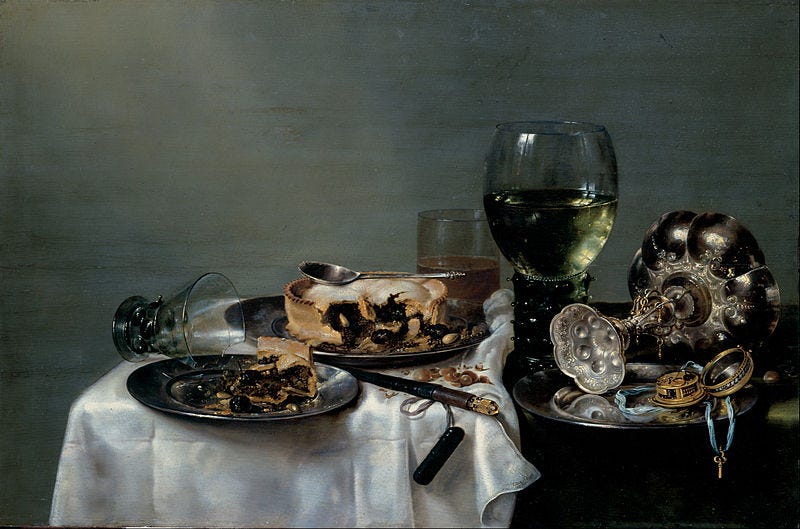

I love the Heda painting. Goes with the melancholy theme of this week's reading. And the reflections in the painting are wonderful artistry.